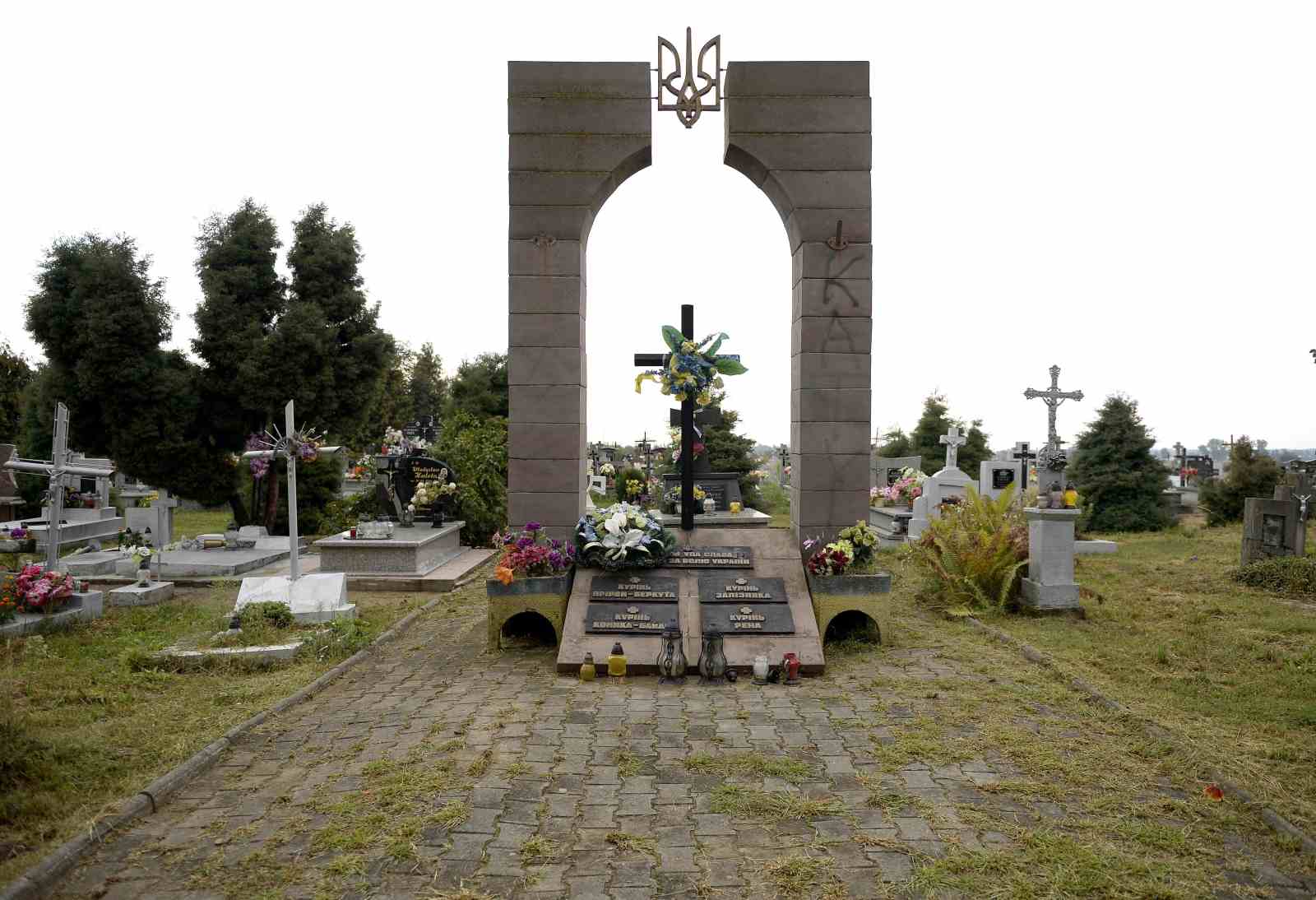
The Ukrainian Insurgent Army monument in Hruszowice. Photo: PAP/Darek Delmanowicz
The monument, which stands in a communal cemetery in Hruszowice, south east Poland, bears an inscription paying tribute to “the heroes of the Ukrainian Insurgent Army who fought for a free Ukraine.”
Until the close of the war, the village community was predominantly made up of ethnic Ukrainians.
“This monument is already over a dozen years old, and until now, no one has protested about it,” said Piotr Tyma, head of the Association of Ukrainians in Poland, as cited by the Polish Press Agency (PAP).
“Taking up the matter now to get rid of it is an attempt to return to the bad Polish-Ukrainian relations concerning memory seen in the 1990s,” he said.
Poland's state-backed Council for the Protection of Struggle and Martyrdom Sites (ROPWiM) has announced plans to take “determined action to eliminate the monument.”
The institution was lobbied to act by Polish MEP Tomasz Poreba, a member of opposition party Law and Justice.
The former Ukrainian Insurgent Army (UPA) has been the focus of much media coverage in recent weeks, owing to the 70th anniversary of the Volhynia massacres, in which tens of thousands of ethnic Poles were slaughtered in UPA attacks.
“Ukrainians must realise that we cannot tolerate a place that glorifies an organisation that murdered Poles,” Poreba told PAP.
Besides the Volhynia region (now in Ukraine, but Polish-ruled prior to WWII), UPA was also active further west in the Przemysl region, to which Hruszowice belongs.
After the UPA strikes began in Volhynia, Poles began to fight back, mainly through units of the underground Home Army (AK).
It is estimated that Poles killed between 2000-3000 Ukrainians in Volhynia, and about 20,000 more when the fighting spread to other areas of south east Poland (1944-1947).
With Volhynia incorporated into Soviet Ukraine following the war, UPA was ultimately crushed. Meanwhile, in territory still belonging to Poland, the newly communist state resettled ethnic Ukrainians who had lived in south east Poland during Operation Vistula. UPA regiments based in the area were left isolated by the action. (nh)